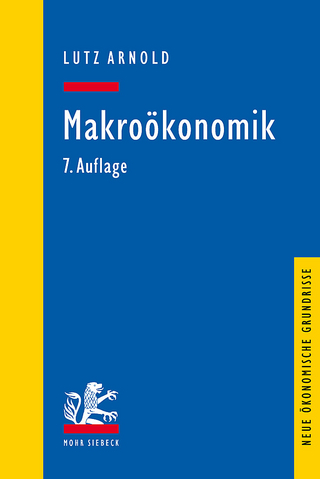De Gruyter Handbook of Degrowth
De Gruyter (Verlag)
978-3-11-077803-8 (ISBN)
Degrowth has emerged as one of the most exciting, and contested, fields of research into the drivers of global heating, ecological collapse, and economic injustice. The perspective is both a critique of existing growth-based models of development, which it argues have put humanity on a collision course with non-negotiable ecological limits, and a vision for a brighter future in which humans and non-humans alike can flourish. By putting an end to growth-seeking economic development and boundless energetic and material throughputs, degrowth's proponents suggest we can build an economy that meets the material needs of people and planet for generations to come.
This handbook's contributions signal the importance of degrowth across multiple disciplines and practices. Along the way, they grapple with some of the most critical questions, ideological assumptions, policies, and social struggles of our time.
The handbook approaches degrowth as a loosely knit and developing set of interdisciplinary propositions about what it might take to achieve a world of human and non-human flourishing. Contributors explore, challenge, and critique degrowth's propositions and its prospects of shaping scholarly agendas, policy frameworks, and social movements. Essays consider degrowth from a variety of empirical and theoretical vantages, including urban design, architecture, political economy, political ecology, critical geography, and political theory. This integrative approach, at once critical and constructive, aims to preserve for readers the sense of possibility that has drawn people to degrowth scholarship thus far.
lt;p>Lauren Eastwood is a senior researcher at the Käte Hamburger Kolleg/Centre for Global Cooperation Research at the University of Duisburg-Essen, Germany, where she leads the policy field of Global Governance of Climate Change and Sustainability. She is also Professor of Sociology at the State University of New York at Plattsburgh. She has gathered ethnographic data over 25 years at more than 50 UN meetings in order to analyze the making of policy pertaining to climate, biological diversity, forests, and Indigenous peoples. She also engages in research on the increasing criminalization of anti-fossil-fuel infrastructure activism.
Kai Heron is a lecturer in political ecology at Lancaster University. He has research interests in the politics of land, agriculture, green transitions, and contemporary political theory. He is a founding member of Abundance, a participatory action cooperative that seeks to democratize the economy by expanding the commons.
| Erscheinungsdatum | 01.02.2024 |
|---|---|
| Reihe/Serie | De Gruyter Handbooks in Business, Economics and Finance |
| Zusatzinfo | 24 b/w ill., 1 b/w tbl. |
| Verlagsort | Berlin/Boston |
| Sprache | englisch |
| Maße | 170 x 240 mm |
| Gewicht | 975 g |
| Themenwelt | Wirtschaft ► Volkswirtschaftslehre |
| Schlagworte | consumption • Degrowth • Environment • Nachhaltigkeit • Political Ecology • Politische Ökonomie • Postwachstum • Soziale Gerechtigkeit • sustainability • Wirtschaftstheorie |
| ISBN-10 | 3-11-077803-3 / 3110778033 |
| ISBN-13 | 978-3-11-077803-8 / 9783110778038 |
| Zustand | Neuware |
| Informationen gemäß Produktsicherheitsverordnung (GPSR) | |
| Haben Sie eine Frage zum Produkt? |
aus dem Bereich




